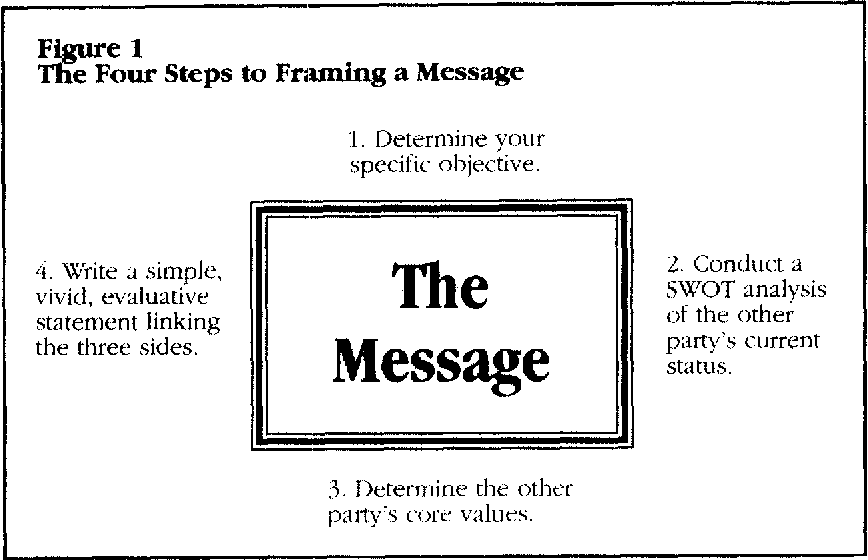11 Proven Strategies to Ace Any Business Negotiation
Master business negotiations with strategies like ZOPA, BATNA, and emotional intelligence for win-win outcomes and lasting success

Mastering effective business negotiation strategies hinges on thorough preparation and strategic planning. Understanding your ZOPA and BATNA enhances your bargaining power, while effective communication fosters trust. Emotional intelligence plays a key role in steering interpersonal dynamics, allowing for empathy and active listening. Focusing on win-win solutions strengthens relationships, ensuring both parties feel valued. Finally, closing techniques that emphasize mutual benefits and proactive concern addressing can seal agreements effectively. By embracing continuous improvement and strategic relationship management, you position yourself for success in future negotiations, paving the way for more in-depth insights into this crucial skill set.
Get the Best Updates on SaaS, Tech, and AI
Takeaways
- Thoroughly prepare by defining objectives, desired outcomes, and potential concessions to lay a strong foundation for negotiations.
- Understand ZOPA and BATNA to strategically position offers and enhance your bargaining power during discussions.
- Foster effective communication through active listening, open-ended questions, and persuasive framing to build rapport and trust.
- Utilize closing tactics that emphasize mutual benefits and shared goals while addressing any lingering concerns before finalizing agreements.
- Engage in continuous improvement by analyzing past negotiations and implementing feedback mechanisms to refine strategies and enhance future collaboration.
1. Importance of Preparation
Although negotiation outcomes can often seem uncertain, the significance of thorough preparation cannot be overstated; it serves as the foundation upon which successful negotiations are built. Strategic planning is critical, enabling negotiators to define their objectives, desired outcomes, and potential concessions. Analyzing both parties’ strengths and weaknesses fosters a competitive edge, allowing for informed decision-making. Additionally, preparation involves researching market data and trends, which informs positioning and enhances credibility.
By establishing a clear agenda, negotiators can maintain focus and direction throughout discussions. Ultimately, preparation equips individuals with the necessary tools to navigate complexities and exert influence, underscoring its essential role in achieving favorable results and sustaining power in negotiations. This proactive approach elevates the negotiation process from mere chance to calculated strategy.
2. Understanding ZOPA and BATNA
Understanding the concepts of Zone of Possible Agreement (ZOPA) and Best Alternative to a Negotiated Agreement (BATNA) is essential for effective negotiation. The ZOPA definition encompasses the range within which parties can find agreement, thereby facilitating a successful outcome. Recognizing this zone empowers negotiators to strategically position their offers and explore viable solutions.
Conversely, the BATNA significance lies in its role as a benchmark against which any proposed agreement is measured. A strong BATNA enhances leverage, allowing negotiators to walk away from unfavorable terms confidently. Mastering these concepts enables negotiators to identify ideal strategies, enhance bargaining power, and ultimately secure favorable agreements that align with their objectives while maintaining strategic relationships.
3. Tailoring Negotiation Strategies
Tailoring negotiation strategies is critical for achieving ideal outcomes, as the effectiveness of any approach hinges on the unique context of the negotiation at hand. Employing tailored approaches allows negotiators to align their tactics with specific goals and the dynamics at play.
For instance, adaptive techniques can shift in real-time to respond to the counterpart’s behavior and evolving circumstances, enhancing leverage. Understanding the nuances of each negotiation scenario empowers negotiators to balance assertiveness with flexibility, ensuring that they remain in control while fostering collaboration.
By strategically customizing their methods, negotiators can maximize value and secure advantageous agreements, making the difference between a favorable deal and a missed opportunity. This strategic adaptability is essential for those who aspire to wield power in negotiations.
4. Effective Communication Techniques
Negotiation success heavily relies on effective communication techniques, which serve as the foundation for building rapport and fostering trust between parties. Implementing active listening allows negotiators to fully comprehend the counterpart’s needs, creating a strategic advantage. By employing open-ended questions, one can encourage deeper dialogue, extracting crucial information that informs one’s position.
Moreover, persuasive framing is essential; it focuses on articulating the benefits of proposals in a manner that resonates with the counterpart’s interests. This approach enhances persuasiveness and aligns both parties towards mutually beneficial outcomes.

Consistently summarizing key points guarantees clarity and mutual understanding, solidifying the groundwork for a successful negotiation. Effective communication transforms negotiations from mere transactions into powerful strategic alliances.
5. Role of Emotional Intelligence
Emotional intelligence plays a pivotal role in the success of negotiations, as it equips negotiators with the ability to navigate complex interpersonal dynamics effectively. Mastering emotional awareness allows negotiators to recognize and interpret their emotions and those of others, fostering a strategic advantage. By honing empathy skills, negotiators can better understand the motivations and concerns of their counterparts, facilitating a more constructive dialogue.
This understanding empowers negotiators to tailor their approaches, enhancing rapport and trust, which are essential for favorable outcomes. In high-stakes negotiations, emotional intelligence becomes a critical leverage point, enabling negotiators to influence, persuade, and ultimately achieve their objectives with greater efficacy and confidence.
6. Collaborative Problem-Solving
A successful negotiation hinges considerably on the adoption of a collaborative problem-solving approach, which fosters an environment conducive to mutual gain. This strategy requires a collaborative mindset, essential for maneuvering complex negotiations where interests intersect. By leveraging strong problem-solving skills, negotiators can identify shared objectives and craft win-win solutions that satisfy both parties. Engaging in open dialogue encourages transparency and creativity, allowing for innovative solutions that might not emerge through adversarial tactics.

Additionally, a collaborative approach enhances relationships, positioning negotiators as strategic partners rather than opponents. Ultimately, embracing this method not only empowers negotiators to achieve favorable outcomes but also cultivates an atmosphere of trust and respect, essential for long-term collaboration and success in future negotiations.
7. Building Trust Through Transparency
Trust serves as the foundation for effective negotiations, and transparency is a key component in cultivating this trust. Employing trust-building techniques through openness about intentions, objectives, and constraints fosters a climate conducive to collaboration. When parties share pertinent information, they mitigate suspicions, paving the way for more effective communication and quicker resolutions. The transparency benefits extend beyond immediate agreements, as they establish a precedent for future interactions, enhancing mutual respect and reducing the likelihood of conflicts.
As negotiators reveal their rationale and decision-making processes, they invite counterparts to do the same, ultimately leading to more principled negotiations. In this power-centric arena, transparency not only solidifies trust but also positions negotiators as credible leaders, capable of guiding discussions toward ideal outcomes.
8. Exploring Win-Win Solutions
While negotiations often present challenges, the pursuit of win-win solutions can transform potential conflicts into collaborative opportunities. By engaging in creative brainstorming, negotiators can uncover innovative approaches that align the interests of both parties, paving the way for mutual benefits. This strategic mindset enhances cooperation and fosters trust, presenting a robust foundation for long-term relationships. Identifying overlapping goals and leveraging each party’s strengths allows for tailored solutions that satisfy individual objectives.
Emphasizing collaboration over competition empowers negotiators to transcend traditional barriers, ultimately leading to outcomes that benefit all involved. In the domain of powerful negotiation, the ability to create win-win scenarios is not merely advantageous; it is essential for sustained success and influence.
9. Closing Techniques for Success
Achieving a successful conclusion to negotiations is as essential as the strategies employed during the discussions themselves. Effective closing techniques are pivotal in solidifying agreements and ensuring both parties feel empowered. Utilize closing tactics that reaffirm mutual benefits, such as summarizing key points and emphasizing shared goals. As you approach the conclusion, be prepared to address any lingering concerns and propose actionable steps to facilitate agreement.
Implementing strategic negotiation follow-ups is vital; they confirm commitment and reinforce the relationship. Documenting the terms clearly mitigates future disputes and serves as a foundation for ongoing collaboration. Ultimately, a well-executed closing fosters trust and positions you favorably for future negotiations, enhancing your standing in the business arena.
10. Managing Relationships Post-Negotiation
Effective management of relationships post-negotiation is essential for fostering long-term collaboration and mutual benefit. Strategic relationship maintenance involves ongoing communication and trust-building efforts that reinforce commitments made during negotiations. Implementing regular feedback sessions can identify areas for improvement and guarantee both parties feel valued and heard.
This proactive approach mitigates potential conflicts and enhances the likelihood of future cooperation. By demonstrating a commitment to mutual success, leaders can solidify their influence and create a resilient partnership. Cultivating these relationships positions stakeholders favorably for subsequent negotiations, enabling them to leverage their established rapport for greater advantage. Ultimately, managing post-negotiation dynamics is a critical investment in sustained organizational power and competitive edge.
11. Continuous Improvement in Negotiation
Continuous improvement in negotiation is essential for adapting to ever-evolving market conditions and stakeholder expectations, as it allows negotiators to refine their strategies and enhance their effectiveness over time. Implementing continuous feedback mechanisms enables negotiators to identify both successful tactics and areas for growth.
This iterative learning process fosters agility, equipping negotiators with the insights necessary to pivot strategies in real-time. By analyzing past negotiations, one can discern patterns and anticipate counterpart behavior, ultimately gaining a strategic advantage.
Empowering teams to engage in regular debriefs and reflections transforms experiences into actionable knowledge, ensuring negotiation prowess is not only maintained but continually elevated. In a competitive landscape, mastering this discipline is crucial for sustained influence and success.
Frequently Asked Questions
What Are Common Mistakes to Avoid During Negotiations?
Common mistakes in negotiations include falling into preparation pitfalls, such as insufficient research and unclear objectives, and failing to manage emotional triggers that can derail discussions, leading to poor outcomes and weakened relationships.
How Do Cultural Differences Impact Negotiation Strategies?
Cultural differences considerably influence negotiation strategies, necessitating cultural awareness to navigate varying negotiation styles. Understanding these distinctions fosters effective communication, enhances relationship-building, and ultimately empowers negotiators to achieve favorable outcomes in diverse contexts.
What Role Does Body Language Play in Negotiations?
Body language greatly influences negotiations, as nonverbal cues and facial expressions convey emotions and intentions. Mastering these elements allows negotiators to assert control, enhance rapport, and strategically respond to counterparts, fostering a more favorable outcome.
How Can I Handle Difficult Counterparts Effectively?
Effectively handling difficult counterparts requires leveraging emotional intelligence and active listening. By understanding their motivations and concerns, you can strategically address issues, foster collaboration, and navigate conflicts, ultimately transforming challenges into opportunities for mutual benefit.
When Should I Consider Walking Away From a Negotiation?
Consider walking away from a negotiation when deal breaker scenarios arise, such as unacceptable terms or misalignment with your negotiation boundaries. Prioritize long-term interests over immediate gains to maintain strategic advantage and integrity in future negotiations.
Conclusion
In summary, mastering effective business negotiation strategies is akin to steering through a complex labyrinth, where preparation and understanding of key concepts such as ZOPA and BATNA serve as essential guideposts.
By fostering emotional intelligence and employing effective communication techniques, negotiators can cultivate win-win solutions that benefit all parties involved. The enduring value of these strategies enhances immediate outcomes and strengthens long-term relationships, ensuring continuous improvement and success in future negotiations.
FTC Disclosure: The pages you visit may have external affiliate links that may result in me getting a commission if you decide to buy the mentioned product. It gives a little encouragement to a smaller content creator like myself.


